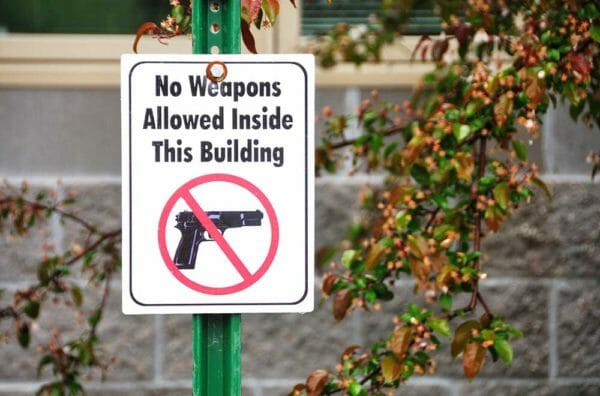
Gabriel Metcalf of Billings, Montana, has accepted a plea deal in the Gun Free School Zone (GFSZ) case, which has been extensively covered by AmmoLand. The plea deal appears to be for probation only, with forfeiture of the single-shot Rossi shotgun and six rounds of ammunition. There is no mention of a fine in the plea agreement. The right to appeal is preserved on page 7 of the agreement.
The plea deal specifically preserves the right to appeal the conviction based on the motion to dismiss entered on October 10, 2023. The motion to dismiss made two arguments. First, the claim was made Gabriel Metcalf was covered by the exception at 18 U.S.C. §922(q)(B)(iii), where the Montana statutes specifically create an individual license for the federal law. Second, §922(q)(2)(A), the GFSZ law, is an unconstitutional infringement on the right to keep and bear arms, protected by the Second Amendment of the United States Constitution.
The Gun Free School Zone Act was initially found to be unconstitutional in 1995, in U.S. v Lopez, because the United States government did not have the authority to regulate the mere possession of a firearm within a thousand feet of any school.
President Bill Clinton and Attorney General Janet Reno lobbied for a change in the law, declaring if the firearm had moved in interstate commerce, the federal government had the authority to regulate possession of the firearm. The change was passed as part of a larger spending bill. Eight circuit courts of appeal have ruled on the constitutionality of the law based on the wording change. Five have ruled the wording change cured the constitutional defect. Three have ruled the change did not cure the constitutional defect. No court has ruled on the constitutionality of the GFSZ act under the Second Amendment, except for the Billings District court, in this case, where Judge Susan Waters ruled the GFSZ act did not infringe on rights protected by the Second Amendment.
The decision to accept the plea deal was an agonizing one for Gabriel Metcalf. A previous plea offer was rejected. This plea deal was only accepted at the last minute after seeing what evidence would be allowed at trial. No evidence would be allowed showing valid reasons to possess the firearm for the defense of self and others. The federal statute does not contain a defense of self and others exception. The constitutional argument would not be allowed at trial. Preventing juries from hearing constitutional arguments has become standard practice. The recording of Gabriel Metcalf calling federal officers to ask for help because of perceived local police misconduct would not be allowed at trial. An estoppel defense, where the defendant relies on information given by local police, would not be allowed.
Billings police repeatedly made statements to the effect Gabriel was not breaking any laws, so they could not arrest him. The prosecutors had several witnesses who claimed they had seen Gabriel with a firearm outside his property, on a public sidewalk, inside the Gun Free School Zone. There was never an indication Gabriel had been on school property, had threatened anyone, or had broken any other law.
As a practical matter, in order for the case to be appealed, Gabriel Metcalf had to be found guilty, either at trial or through a plea deal. If Metcalf had been found not guilty at trial, he would not have grounds for appeal in this criminal case. This case appears to be the best test case to challenge the constitutionality of the GFSZ Act. The Ninth Circuit has been hostile to treating the Second Amendment as a fundamental part of the Bill of Rights. Some three-judge panels have followed the Supreme Court guidance as given in the Heller, McDonald, Caetano, and Bruen decisions. At the Ninth Circuit, those have been taken to en banc panels and reversed.
Judge Susan Waters is reported as saying in court she will not hold it against Gabriel Metcalf if he appeals her decision to the Ninth Circuit. A sentencing hearing is scheduled for August 2, 2024.
Gabriel’s mother has set up a GiveSendGo site to help defend their home and aid in Gabriel’s defense.
About Dean Weingarten:
Dean Weingarten has been a peace officer, a military officer, was on the University of Wisconsin Pistol Team for four years, and was first certified to teach firearms safety in 1973. He taught the Arizona concealed carry course for fifteen years until the goal of Constitutional Carry was attained. He has degrees in meteorology and mining engineering, and retired from the Department of Defense after a 30 year career in Army Research, Development, Testing, and Evaluation.

from https://ift.tt/p12fvle
via IFTTT

No comments:
Post a Comment